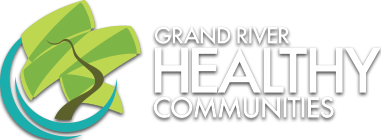THE BENEFITS
For decades, research has supported the link between education and social benefits revealing that education not only enables individuals to perform better in the labour market, but also helps to improve their overall health, promote active citizenship and reduce violence. With increased levels of education, residents in our communities will be more likely to gain knowledge of technical skills leading to more employment opportunities. Education and awareness can also give individuals the tools they need to take control over their health choices.
Concerns that our community is lagging behind provincial education averages have made this a priority area for the Grand River Healthy Communities Initiative. For example, just slightly more than half of adults have a post-secondary certificate, diploma, or degree and our elementary school students lag behind their peers in other communities when it comes to overall development and academic achievement.
LEARN MORE
For more information, please contact:
Laura Fretz, Public Health Nurse
519-753-4937 ext. 323
ADDITIONAL RESOURCES
- Education Flyer
-
Accommodations for Web Users with Disabilities
Please note that accessible formats and communication supports are available upon request. For more information please contact us at: healthequity@bchu.org.
ACTION GROUPS
Access to quality education has been a key topic of discussion since the community held a Health Equity Forum in March 2015. At that time, a shared vision was established:
“A Vital and heathy community will build knowledge that optimizes potential through quality education, literacy, and lifelong learning.”
The focus areas of this vision are:
- Building skills
- Access to education
- High school graduation
- Teaching life skills in schools
In March 2018, an Education Forum examined current efforts to address this priority and related issues. Members of the community were invited to attend and share current initiatives in education through the lifespan. Key to the Forum was participant commitment to collaborating on resources and developing partnerships to carry out innovative strategies.
Thirty participants heard seven presentations of current innovations that support education. A overview of the input and findings is represented in the graphic below, providing a “Call to Action” to develop a community culture of learning across the lifespan. All agreed that a collective impact approach was necessary to make this goal a reality.
A second Education Forum to define the collective impact approach to this goal will be scheduled in late spring, 2018.

